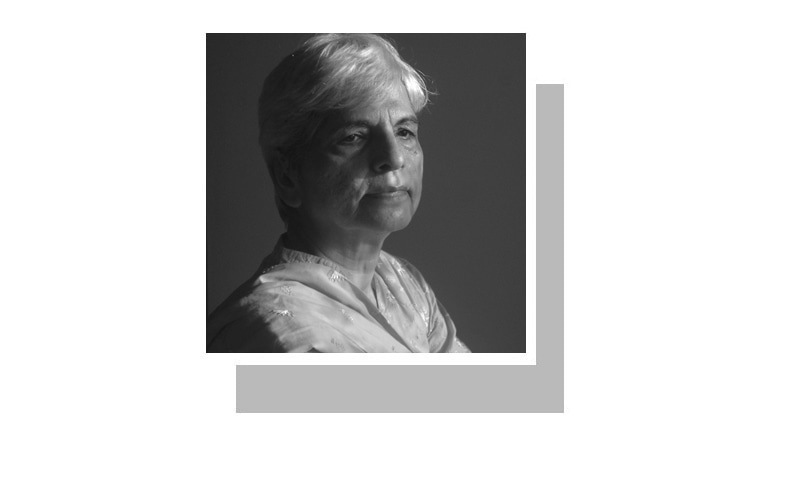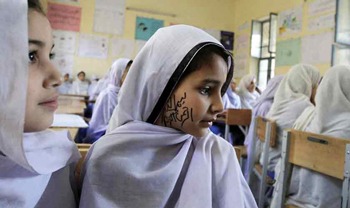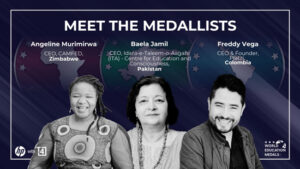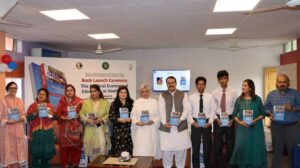
Library? Yes or no
Zubeida Mustafa - Published February 26, 2021 3
AT the Pakistan Learning Festival, the session on ‘Incredible Libraries’ attracted many bibliophiles. It is a paradox that in this age of ‘un-education’ in Pakistan a discourse on libraries should win a prized spot. The credit for this goes to the sponsors of the festival, the Idara-i-Taaleem-o-Agahi that has always regarded libraries as an important source of learning.

It was a great idea to showcase some extraordinary libraries that are real treasures in terms of their ingenuity and the inspiration they provide to young readers who are otherwise deprived of their basic right to education.
Study the principles that underpin the Alif Laila Bus Book Library (Lahore), the Kitab Garri, a rickshaw-library (Lahore), the Oont Library on a camel (Mand, Balochistan) and the Digi Kutubkhana in a steel trunk (Mubarak Village, Sindh). They owe their creation to innovative ideas. Their success belies the commonly held belief that big and expensive structures filled with costly books are the first prerequisite of a library. On the contrary, all you need are low-priced books in an appropriate language for the targeted readership and a librarian who loves books as much as children.
The incredible libraries identified above meet these criteria and are success stories. Also, their accessibility offers them an advantage. They are within easy reach of their readers who are not required to overcome barriers of distance to read the books they want.
Some extraordinary libraries exist in Pakistan.
In that context, the move to set up a small library in the open space adjacent to the Metropole Hotel in Karachi was an ingenious one in spirit but not in planning. A brainchild of the previous commissioner of Karachi, Iftikhar Shallwani, it failed to be a crowd-puller for obvious reasons. First is its inaccessibility — an island in a stormy sea of heavy traffic. Without a librarian to attend to readers it stands deserted most of the time. The armed security guard is a poor substitute to inspire anyone. Maybe similar spots all over Karachi in the vicinity of katchi abadis equipped with cupboards full of books for readers of all ages in appropriate languages staffed by a kindly librarian with the gift of the gab could serve a useful purpose and form yet another category of incredible libraries.
Given the current state of education in Pakistan, the country is now ready for a change and this time change will come from below and not the ivory towers of our educationists. It is the government itself that is driving this reaction by its own inaction on new initiatives for meaningful education and its extraordinary zeal for straitjacketing students in the name of uniformity and national unity. That is what has always been our rulers’ goal and that is what the Single National Curriculum is all about. It is a ploy to chain students’ thoughts, indoctrinate them and suppress free expression. Of course, the Curriculum Council claims otherwise. But giving students a heavy dose of faith to make them morally sound will backfire as has happened since Ziaul Haq tried to Islamise society. It is no coincidence that thereafter religiosity has increased as has violence.
Conventionally, religion is taught with no questions allowed. How can the child learn to think critically if she is not allowed to ask questions? Let parents/ustanis do this job as they have done for ages and they will do it better.
Another prerequisite of critical thinking is comprehension of what one observes, hears or reads which triggers the thought process. If an alien language is thrust on a child without giving her competency in it nothing will be achieved. An analysis of the SNC for English and Urdu and their textbooks shows that they are immaturely designed for children whose mother tongue is neither English nor Urdu. It is plain that the language conundrum in Pakistan’s education system is not about to end soon. Children will continue to be dumbed and the rote learning culture will remain. That will ensure that the bulk of our youth remains the ‘educated but unlearned’ young men and women that many of them are today.
It is in this context that I see a new role for libraries. They can primarily be centres of learning than storehouses of books. The librarians will become teacher-activists and organisers of study groups to hold discourses on various issues which a good education system would encourage in its classrooms. But that seems unlikely in our presently conformist set-up.
Hopefully, youth organisations will step forward to promote this alternative and thus fill the vacuum in our education system by organising study groups. Some already exist. Their number is too small. Mercifully, every university in Pakistan has a library which could become the nucleus of a network of study circles which could promote a discourse on issues that are taboo in our educational institutions.




